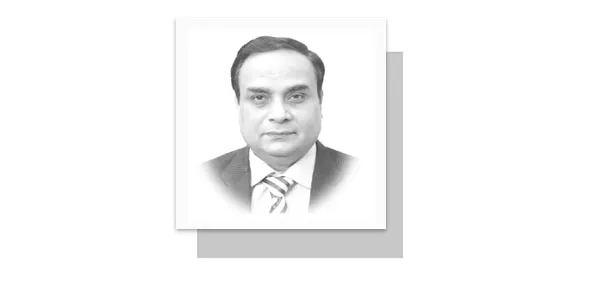AS usual the favourite international electoral organizations namely the OSCE Office for Democratic Institutions and Human Rights (ODIHR) and the OSCE Parliamentary Assembly (OSCE PA) raised so-called serious concerns about the recently held snap parliamentary election in Azerbaijan and terming it devoid of real competition amid diminishing respect for fundamental freedoms which is absolutely “incorrect” and factually “wrong” showing structural “deficiencies” of these organizations. So all observations of Rights (ODIHR) and the OSCE Parliamentary Assembly (OSCE PA) do not have “relevancy”, “objectivity” and “truthfulness” and last but not least accuracy rather it seems to be a “blind wish list”.
Ironically, the US, European Union and Norway Helsinki Committee and many other countries’ international observers also followed the footprints of the ODIHR and the OSCE PA and tried to spoil the most recently-held parliamentary election in Azerbaijan. The spokesperson for the US Department of State Matthew Miller said at a daily briefing by quoting that the electoral observations of the ODIHR and the OSCE PA and urging Azerbaijan to implement the OSCE’s previous recommendations enabling the exercise of fundamental freedoms by its people consistent with its constitution and international commitments. It seems that the American Diaspora in these countries misguided these countries and their authorities about the openness, transparency of the Chief Election Commission and its regional offices to hold an impartial election in the country.
On the contrary, the parliamentary elections were held according the country’s constitution, existing electoral laws and, notably, Chief Election Commission’s codes showing complete administrative “neutrality”, professional “honesty” and personal commitment due to which there was not a single incident reported for any structural laps, proxy and ghost and multiple voting, violence during the electoral campaigns, official discrimination favouring to any specific candidate or a political party. Everybody was free to vote and contest the election with multiple political choices and parties in the election. The so-called concerns raised by the US regarding Azerbaijan’s elections may stem from a lack of understanding of the country’s electoral process and political system. US authorities seem unaware of Azerbaijan’s political culture and structural electoral reforms, which should be highlighted by its election commission and foreign ministry to counter Western propaganda, often used as a geopolitical tool.
Similarly, the inclusion of the EU and Norway Helsinki Committee exposes a deliberate agenda to target Azerbaijan, leveraging narratives of human rights violations and state impartiality. However, Azerbaijan remains the oldest and most advanced democratic system in the region. The presence of independent candidates, vibrant media, active NGOs, civil society participation, and extensive international observation (600 observers from 69 countries and over 112,000 local observers) contradicts claims by ODIHR and OSCE PA, revealing their biases driven by Armenian influences in these countries.
According to these international watchdogs organizations, Azerbaijan’s parliamentary elections did not offer voters genuine political alternatives and took place within a legal framework overly restrictive of fundamental freedoms and the media, although they were efficiently prepared showing their own contractions and weak clarity of minds just trying to polluting minds of regional as well as international communities about the fair, free, openness and transparency of the recently held election in Azerbaijan.
Azerbaijan has a Chief Election Commission which is impartial and administratively empowered to continuously initiate and implement electoral reforms in the country which is evident from the increase in women’s share (21 to 30 percent), registration of new political parties, wavering of certain electoral conditions for political parties/independent candidates, increase in electoral funding, inauguration of new media outlets, NGOs and last but not least provision and protection of basic necessities of life and human rights all indicate Azerbaijan a true democratic country having political pluralism, genuine opposition, political diversity and last but not least perfect accountability process to readdress any laps or structural deficiencies in the prevailing electoral and political system in the country.
In summary, despite false and fake propaganda of the ODIHR and OSCE PA indicating some so-called structural flaws in the electoral process and domain of the Chief Election Commission of Azerbaijan, the independent electoral assessment debunked these observations and confirmed no structural inaccuracies, operational inefficiencies and channelizing imperfections in the recently held parliamentary election 2024. Thus their construction of self-acclaimed political hyping and simmering war dashed to the ground only fetching dust and dirt of their own deeds.
Furthermore, the candidate registration process was not marred by overly burdensome requirements, inconsistently applied procedures, and cases of candidates withdrawing citing intimidation and there were no new requirements for political parties introducing further restrictions on their registration. Conversely the most recent election was held in accordance with the international standards consisting of fair, free, transparency, openness, neutrality and last but not least, accountability confirming strong political convention and electoral compassion of the people of Azerbaijan even in newly liberalized areas.
Thus labelling of ODIHR and OSCE PA about the elections as restrictive political and legal environment, lack of political pluralism with the subdued and low-key campaign is actually a “conspiracy” against Azerbaijan state, society and political system which is “vibrant”, “dynamic”, “whole processed”, “decentralized”, “liberalized” and “people’s centric” thus undermining the electoral process. Only genuine concern is that only 37 percent of Azerbaijan’s voters participated in the snap parliamentary elections; however, participation of the approximately 1,000 candidates for competing 125 parliamentary seats is a good omen for its democracy further enhancing its political diversity and existence of opposition. In total, there are 6.4 million eligible voters in Azerbaijan. The exit poll by the Sociological Research Centre showed the ruling New Azerbaijan Party to have secured 68 seats in 125-seat Milli Majlis of the country.
—The writer is President, Pak-China Corridor of Knowledge, Executive Director, CSAIS, regional expert: China, CPEC & BRI.
(mehmoodulhassankhan@yahoo.com)










